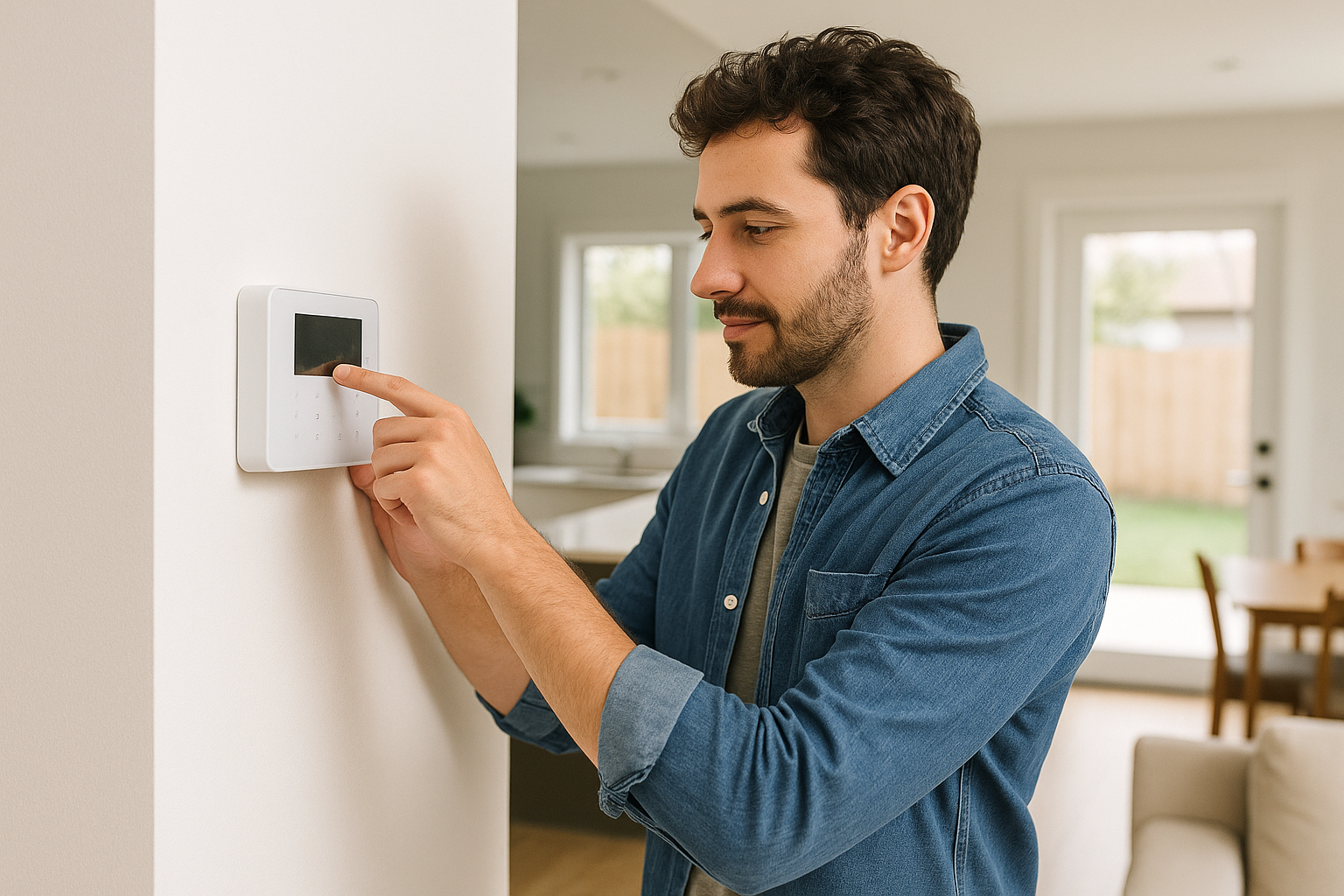Choosing the right home security system is one of the smartest ways to protect your property and bring peace of mind to your everyday life. But with so many options—wired, wireless, DIY, and professionally monitored systems—it can be hard to know where to start.
In this guide, we’ll break down the main types of home security systems, the features to look for, and how to decide what’s best for your budget, home layout, and lifestyle.
What Is a Home Security System?

A home security system is a network of devices that work together to protect your home from intruders, fire, and other emergencies. These systems can be as simple as a single video doorbell or as advanced as a fully monitored smart setup.
Common components include:
- Security cameras (indoor, outdoor, or doorbell-mounted)
- Motion sensors
- Window and door contact sensors
- Alarms and sirens
- Smart locks
- Control panels or mobile apps
Some systems are professionally installed and monitored, while others are DIY-friendly, with no contracts or monthly fees.
According to Security.org, top-rated systems today often combine smart features, mobile app access, and flexible installation options to meet a wide range of needs.
How to Choose the Right System for Your Home
Not all home security systems are created equal. Here are a few key things to consider before you buy:
1. Home Size and Layout
- Small apartments might need only a few door sensors and one camera.
- Larger homes may require multiple zones, outdoor cameras, and more robust monitoring.
2. DIY vs. Professional Installation
- DIY systems are great for tech-savvy homeowners who want to save money and customize setup.
- Professionally installed systems are ideal for those who want full service and long-term monitoring.
3. Monitoring Options
- Self-monitored systems alert you through your phone and typically have no monthly fees.
- Professionally monitored systems send alerts to a central station that can call emergency services if needed.
4. Smart Home Integration
If you use smart devices like Google Nest, Alexa, or Ring, look for systems that integrate seamlessly with your existing ecosystem.
5. Budget and Monthly Fees
- Monthly monitoring fees (if applicable) typically run between $15 and $40
- Upfront equipment costs can range from $100 to $1,000+
Key Features to Look For
Whether you’re buying your first system or upgrading, prioritize features that boost both convenience and protection:
- Mobile App Control: Arm/disarm remotely, view cameras, get real-time alerts
- Two-Way Audio: Speak to visitors through doorbell or indoor cameras
- Backup Battery & Cellular Alerts: Keeps your system online even during power outages
- Environmental Sensors: Add-ons that detect smoke, CO2, or water leaks
Tip: If you’re a new homeowner, securing your home should go hand-in-hand with protecting your investment. For more basics on safeguarding your property, check out our first-time home buyer loan guide.
DIY vs. Professional: Which One’s Right for You?

DIY Home Security Systems
- Installation: You set it up yourself—usually with simple instructions and adhesive mounts
- Cost: Lower upfront cost with no installation fees
- Monitoring: Option to self-monitor through mobile alerts, or add optional professional monitoring
- Flexibility: Most DIY systems are contract-free, so you can cancel anytime
- Best For: Renters, tech-savvy users, and budget-conscious homeowners
Professional Home Security Systems
- Installation: Installed by a trained technician, often with a full home walkthrough
- Cost: Higher upfront cost due to equipment and setup fees
- Monitoring: Includes 24/7 professional monitoring with emergency dispatch
- Flexibility: May require a contract (12–36 months) with early cancellation fees
- Best For: Homeowners who want full-service support and hands-off setup
Final Thoughts
A home security system isn’t just about preventing break-ins—it’s about feeling safe in your space, whether you’re home or away. The best system for you is one that fits your home layout, lifestyle, and comfort level with technology.
Start by identifying your priorities—do you want smart features, professional monitoring, or an easy DIY setup? Then compare systems based on what matters most to you.

